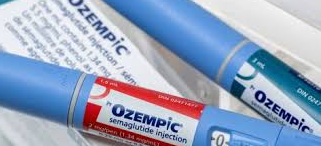
Rising Cases and Fatalities Prompt Health Warnings
The UK is currently experiencing an increase in cases of invasive Group A Streptococcus (iGAS), with reports indicating higher-than-usual levels of infection. Since the beginning of the disease monitoring year in September, the UK Health Security Agency (UKHSA) has documented 659 cases of iGAS across England, surpassing figures from the same period over the past five years.
In just the last three months, there have been 85 cases reported in children aged one to four, compared to a total of 194 cases in that age group for the entire 2017/2018 monitoring year, which had previously seen elevated numbers. Additionally, 60 cases have been reported in children aged five to nine.
As of December 4, the UKHSA has confirmed 60 deaths attributed to iGAS across all age groups in England, with 15 of those fatalities involving individuals under the age of 15. Specifically, 13 child deaths occurred in England, while one each was reported in Wales and Northern Ireland.
The overall fatality rate for this season stands at 9.3%, which is comparable to recent years. For context, the 2017/2018 season had a fatality rate of 12.4%, resulting in approximately 370 deaths from 2,967 cases. The following year saw a rate of 9.1%, while the combined data for 2019-2021 indicated an 11.3% rate due to disruptions caused by the COVID-19 pandemic. The most recent full monitoring year recorded a 10% fatality rate with around 180 deaths from 1,766 cases.
Scarlet fever, which is often linked to Group A Streptococcus, has also seen a significant rise in cases, with 6,601 reported since September 12—more than double the 2,538 cases recorded at the same time in 2017/2018. While scarlet fever is typically mild and treatable with antibiotics, it is highly contagious.
Dr. Colin Brown, deputy director of the UKHSA, emphasised the importance of seeking medical advice if children exhibit symptoms of infection, particularly after experiencing scarlet fever, sore throat, or respiratory issues. Parents are urged to monitor for concerning signs such as persistent fever, dehydration, extreme fatigue, and breathing difficulties.










